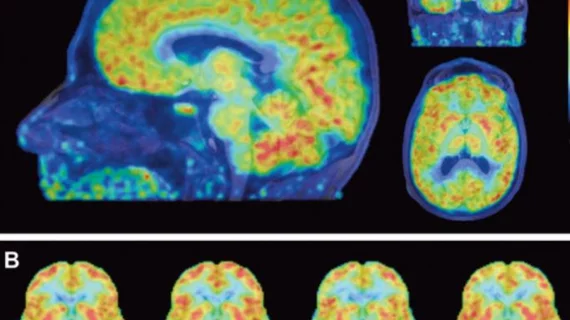PET scans reveal women’s brains appear 3 years younger than men’s
With the help of PET scans, researchers have found women’s brains appear to be three years younger than men’s. The findings, published in Proceedings of the National Academy of Sciences, may explain why women remain mentally sharper longer than men.
Despite each gender’s brain achieving the same chronological age, men’s brains start adulthood about three years older than women’s, meaning their brains do not age faster, but are metabolically older than women’s, senior author Manu Goyal, MD, assistant professor of radiology at Washington University School of Medicine in St. Louis, explained in a prepared statement.
"We're just starting to understand how various sex-related factors might affect the trajectory of brain aging and how that might influence the vulnerability of the brain to neurodegenerative diseases," Goyal added. "Brain metabolism might help us understand some of the differences we see between men and women as they age."
The researchers administered PET scans in 121 women and 84 men, ages 20 to 82, in order to measure the flow of oxygen and glucose in their brains. The scientists also determined each person’s fraction of sugar committed to aerobic glycolysis in various regions of the organ. The brain runs on sugar and some of that fuel is used during the aerobic glycolysis process which sustains its development, but the fraction used steadily declines with age.
After training a machine learning platform to find a relationship between age and brain metabolism by feeding it the men’s ages and brain metabolism data, the team entered the women’s metabolism data and the algorithm determined its corresponding age. It reported that women’s brains were, on average, 3.8 years younger than their chronological ages. When the analysis was done in reverse, the algorithm found men’s brains were 2.4 years older than their actual ages.
“What we don’t know is what it means. I think this could mean that the reason women don’t experience as much cognitive decline in later years is because their brains are effectively younger, and we’re currently working on a study to confirm that,” Goyal wrote.

